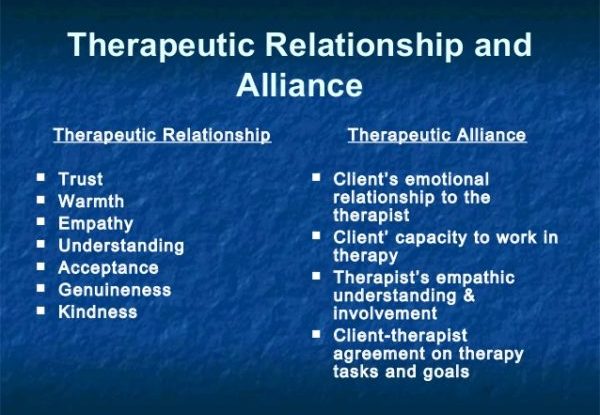“Over the years, research has confirmed what so many therapists have known intuitively. That the therapeutic relationship itself is essential to the success a patient experiences. Some studies have even called it the most important common factor to successful outcomes.” (From an article called The Importance of the Relationship in Therapy written by Lisa Firestone Ph.D. for Psychology Today.)
I don’t flatter myself by thinking I know more than what I do when it comes to helping people with drug and alcohol problems. After all, I only have an associate degree in drug and alcohol counseling that I obtained as a fifty-three-year-old back in January of 2013.
It was from a highly recommended community college and I was fortunate to have teachers who picked the right books to learn from and who knew more about addiction than I did. But again, it was an associate degree in a field that requires a bachelor’s degree or higher, and truth told, I haven’t done any counseling since that time, at least not in a professional setting.
What I have done since then, and actually for years before, is to help people with drug and alcohol problems in my private life, and I am currently employed as a caseworker helping people who have been diagnosed with mental health disorders. Some of them are also diagnosed with a substance use disorder, which is known in the field as a co-occurring disorder (COD). And it has been enough to fulfill me in life.
The main reason I feel fulfilled is the level of help I can give to most of my clients.
Although therapy is left up to a professional for the level of help needed by some clients with co-occurring disorders, I still bring something more to the table than simply being a caseworker, who pushes paperwork and provides transportation when needed.
I hope this doesn’t sound arrogant because I’m not. But if it does, please reread this post from the beginning.
You see, I have also known intuitively for a long time how important a relationship is with anyone I am helping, and although my self-confidence in doing so wavers from time to time, it still remains strong despite the lack of higher college degrees. I know inside that my belief in myself will always shine through to those I am helping—help themselves.
Although I did not know intuitively that it is up to the individual to take the reins of recovery and use whatever help is needed to remain sober and become emotionally well, I did learn this for myself. It not only filled me with self-confidence I never had before but also enough self-love to become happy with who I was.
I hope that doesn’t sound arrogant because it’s not. If it does, please reread the last two paragraphs above.
Helping others help themselves has kept me humble enough to tell each person that it is they who deserve the credit, not me while knowing intuitively, that the healing relationship we share is essential to the success they experience.
